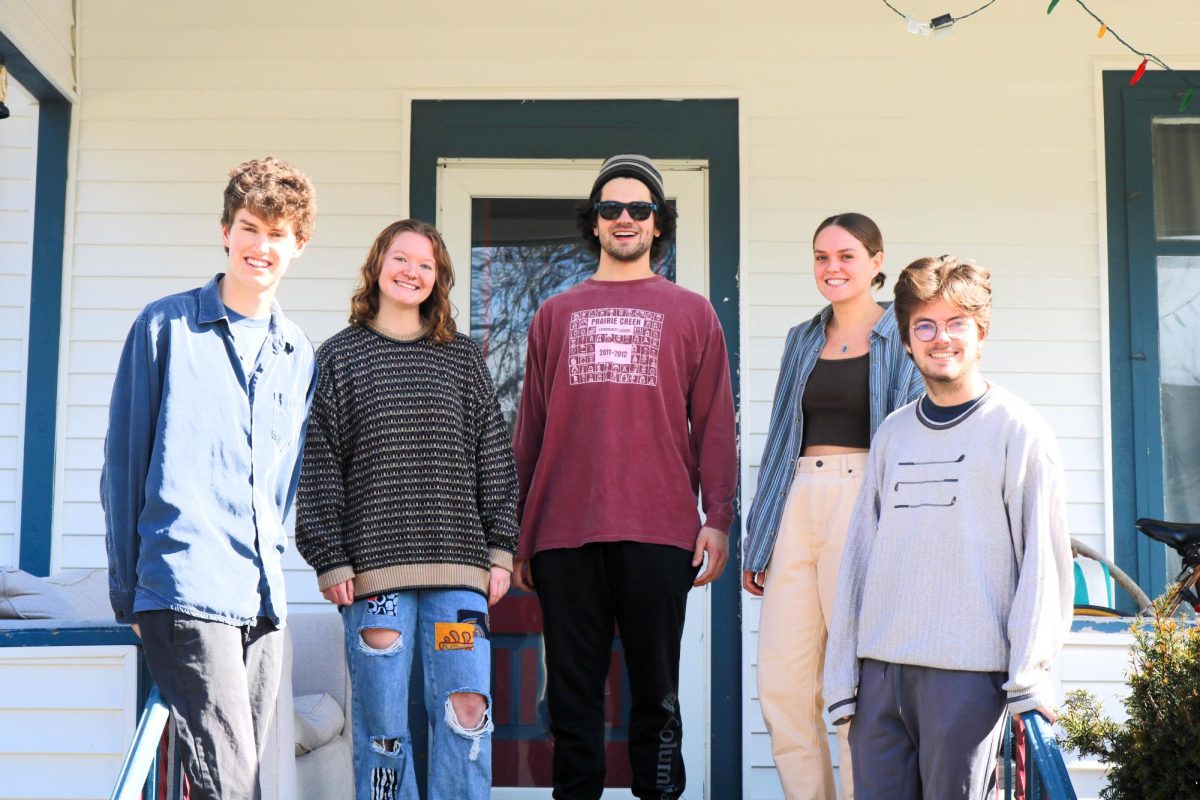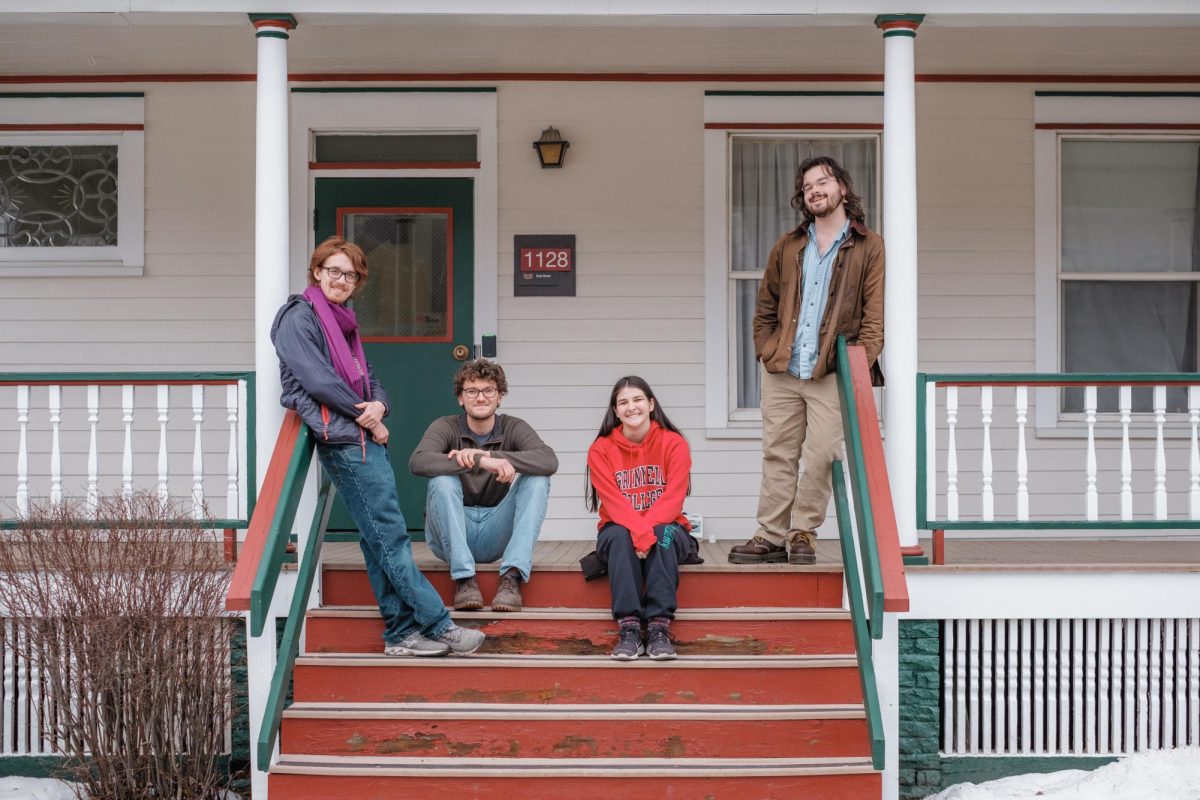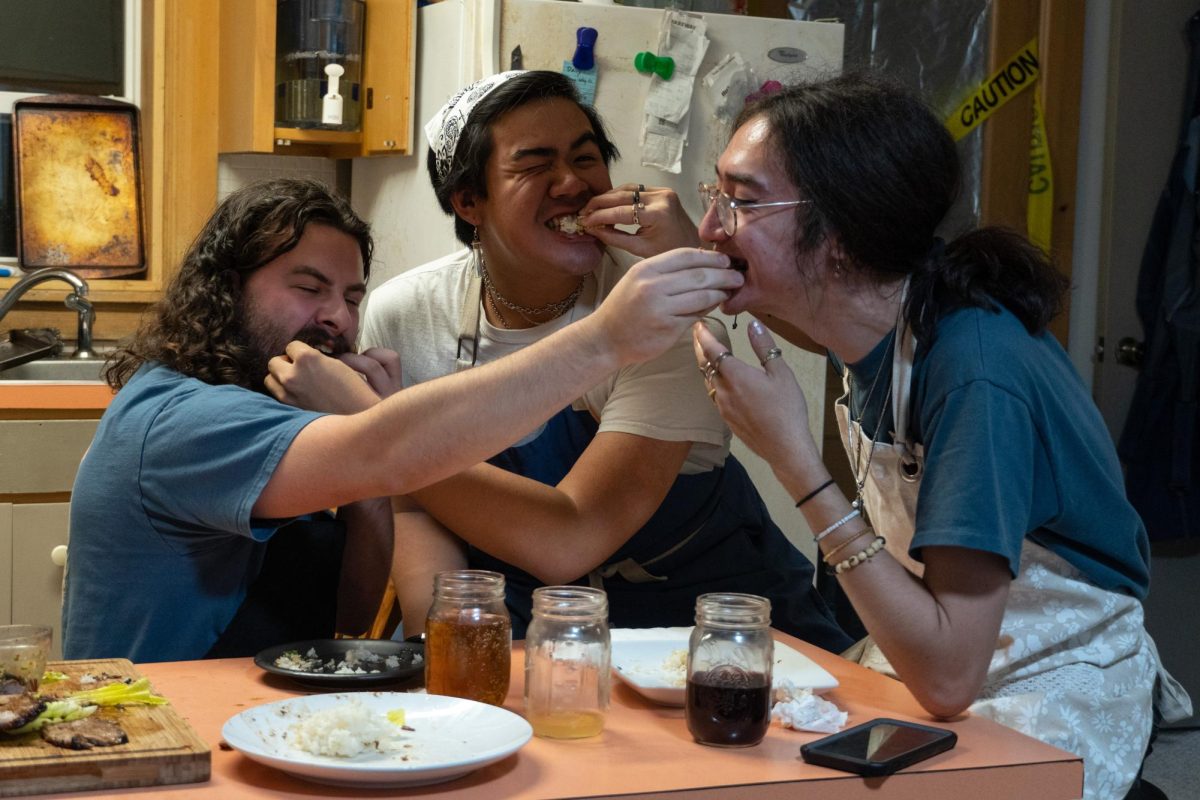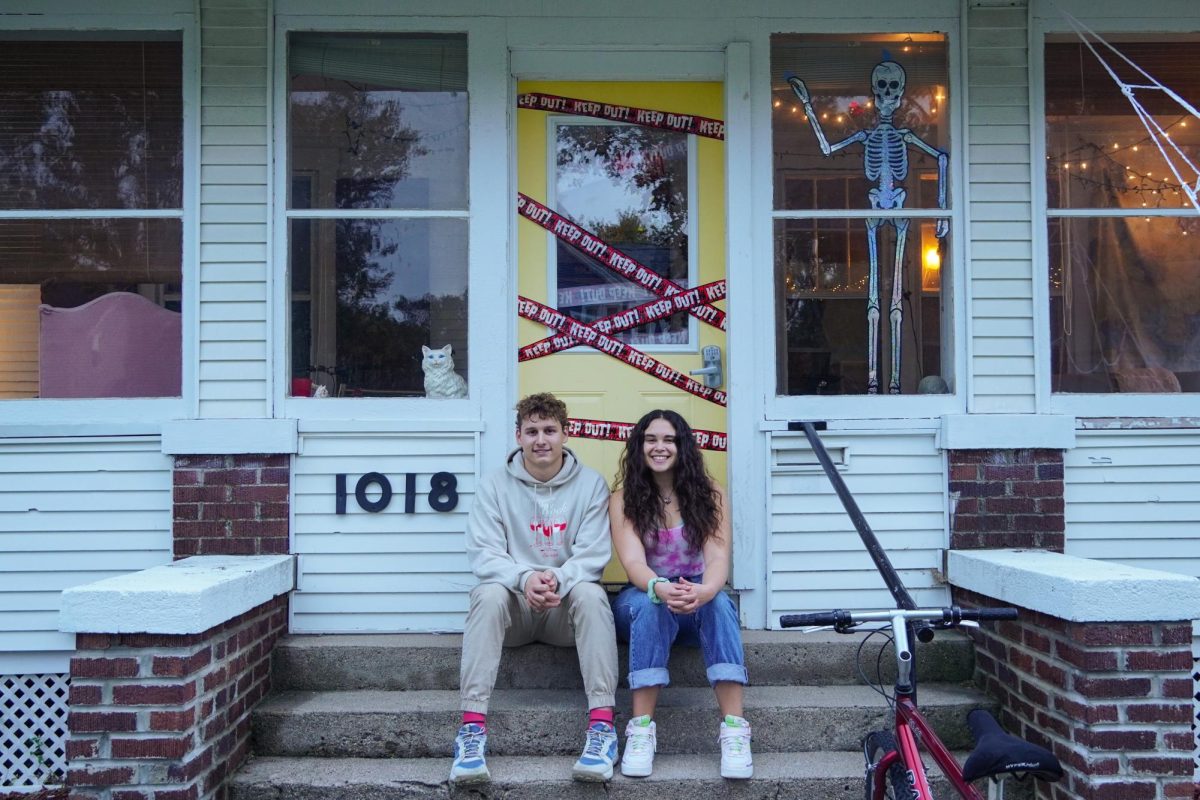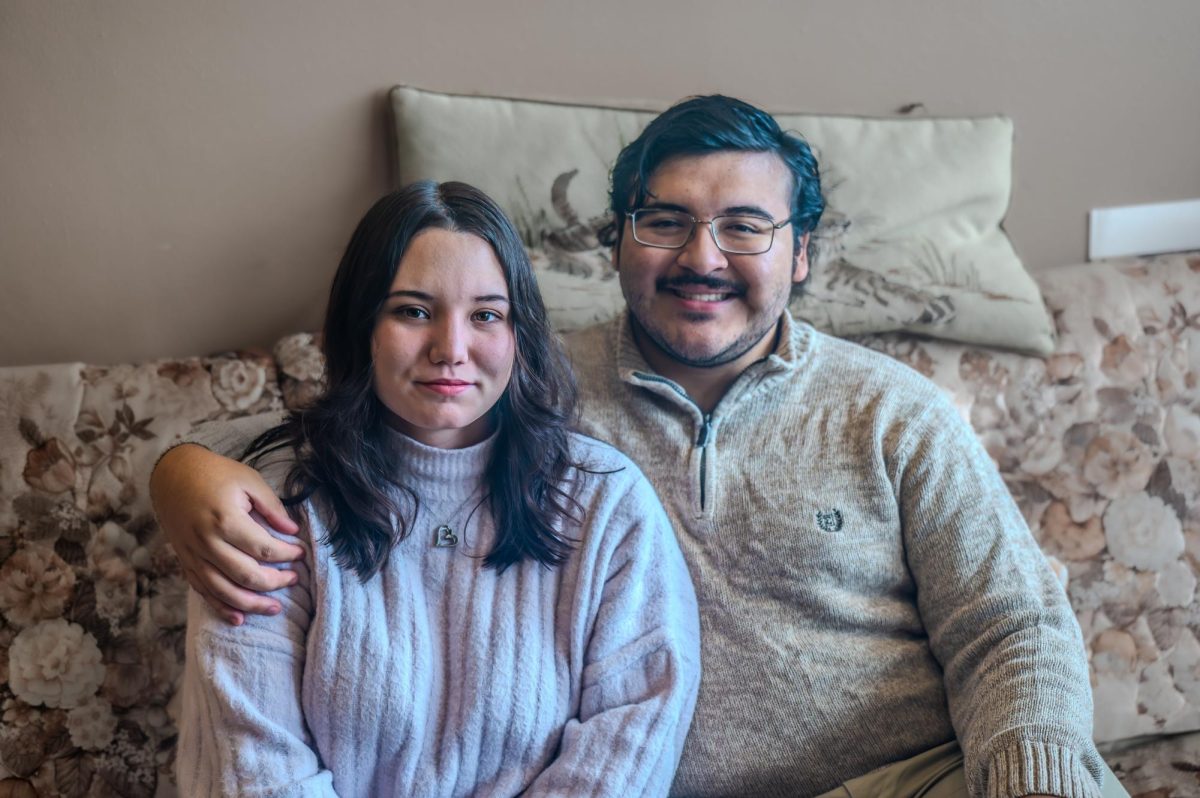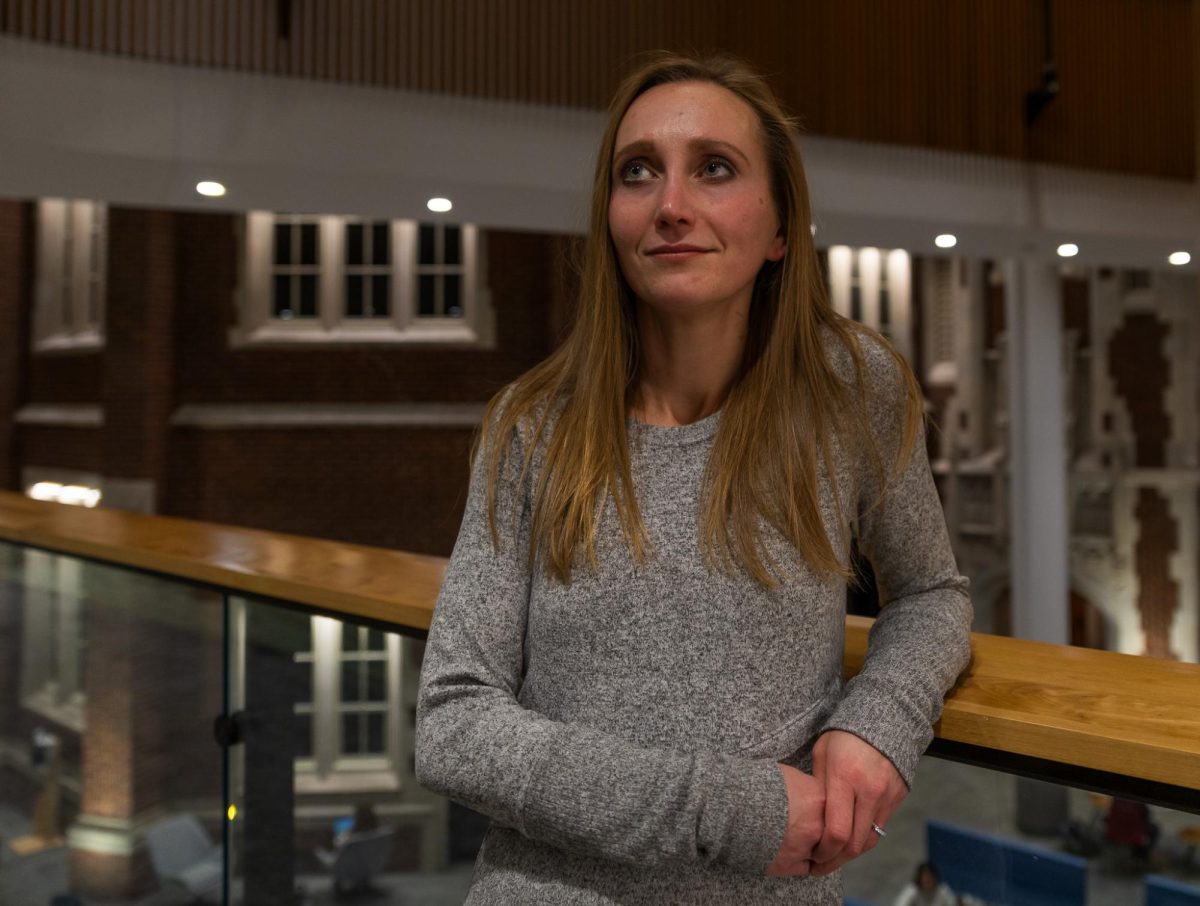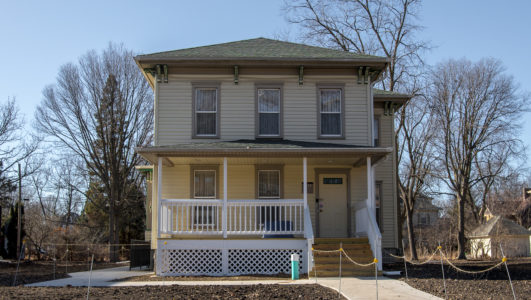
Like a Russian nesting doll, there is more to Russian house than first meets the eye. Situated on Park Street across from North Campus, the house is a hub of Russian and Slavic culture and events for students of Grinnell. It boasts a beautiful, spacious kitchen which is home to the Grinnell Cuisine Society, and its living room is the meeting space of the Friends of Slavs club, an organization for students of Eastern European and Greek descent.
Additionally, the house is a space for the Russian Department to host events like film screenings and to facilitate student-professor interaction beyond the classroom. They host a Russian Tea for students of the Russian department to collaborate with professors and other events unique to Slavic culture like St. Andrew’s Night, a night of fortune-telling that happens in December.
The Russian influences are apparent upon entering the house. There is Russian imagery on the doors, a drawing of a traditional Russian woman on the living room’s whiteboard and Russian movie posters on the walls. The Russian house relocated at the end of the summer due to the construction on Park Street and is now situated between the Chinese and German houses. Despite the change, they are still going strong as a warm community for Russian language and culture. The house is an important resource for students who want to get more in touch with Russian and Slavic cultures.
Language Assistant Sofia Kutceva, a Russian native who is living in Russian House for her second year, said that after living in a dorm briefly during the relocation she appreciates living in Russian House more than ever.
“It’s a cool house and I like the people who live in the house and it feels really good to live there,” Kutceva said.
Gabi Gryc ’20, who also calls Russian House home, felt similarly, saying that living in a house fosters a sense of community that a dorm never could, with residents studying together, eating meals in the spacious kitchen and trying to speak Russian.
Although there are native Russian speakers living in the house, many of the residents are learning the language together in an immersive experience, building upon the knowledge that students gain in the classroom. Slavic culture is also important to Russian house; Gryc’s Polish ancestry is why her tutorial professor recommended that she live there. For those who have moved from Russia and Slavic countries, Russian House provides a place to celebrate their homes while living in a fun community with comfortable couches.





















































